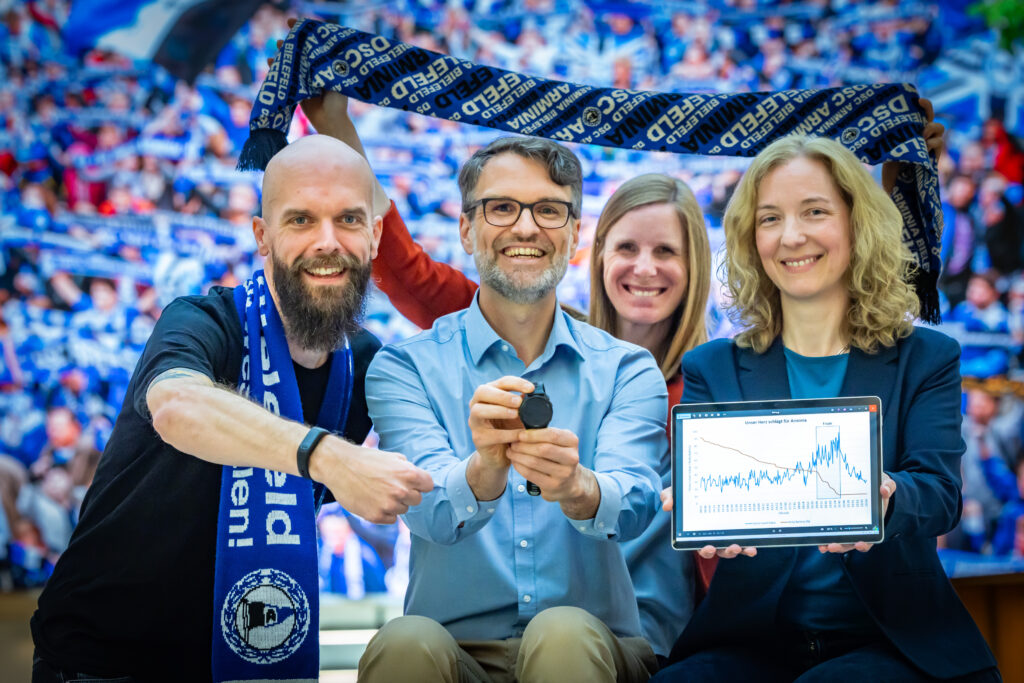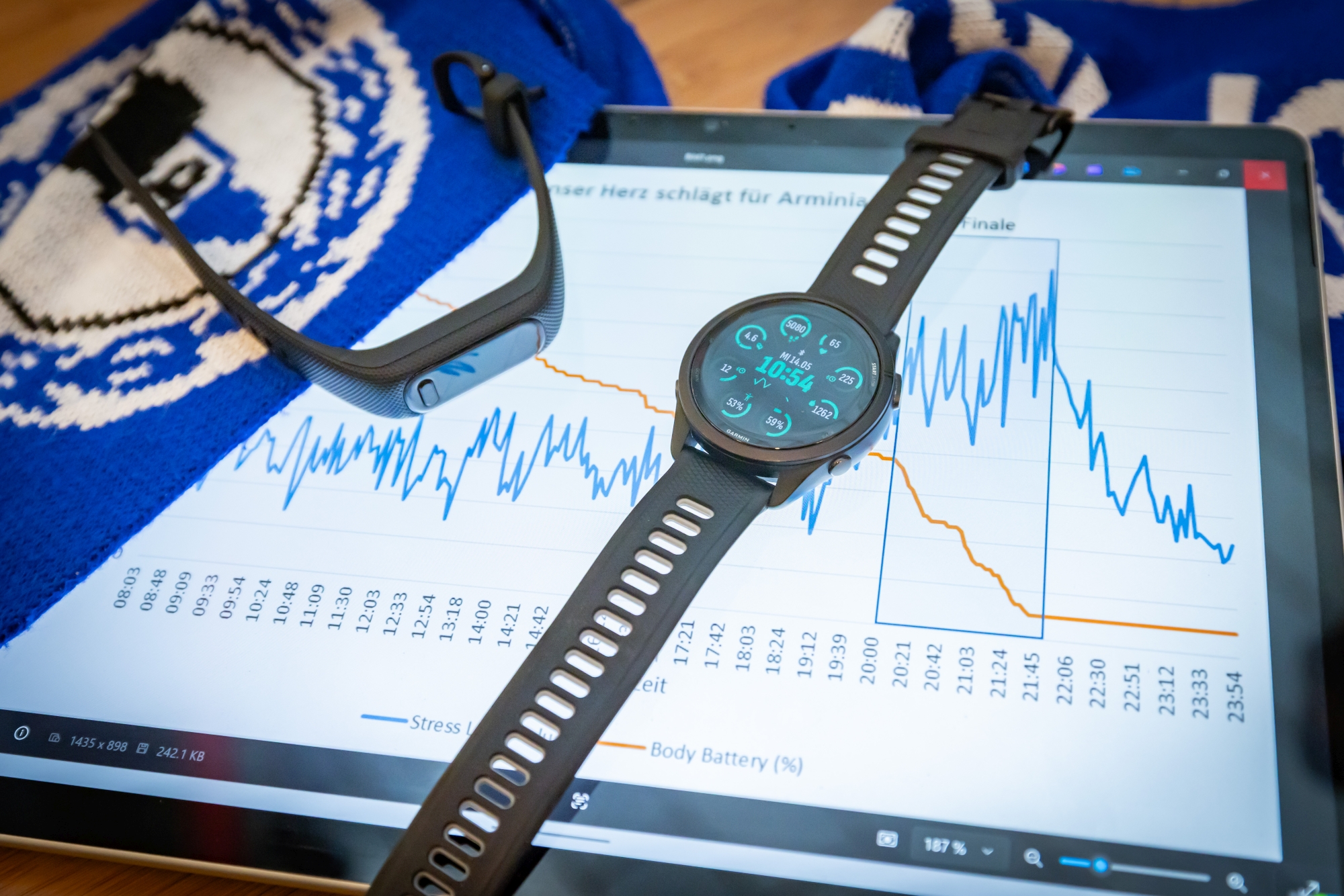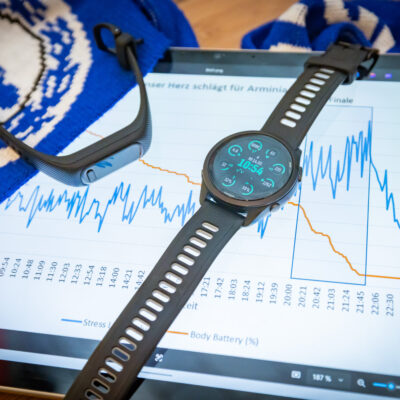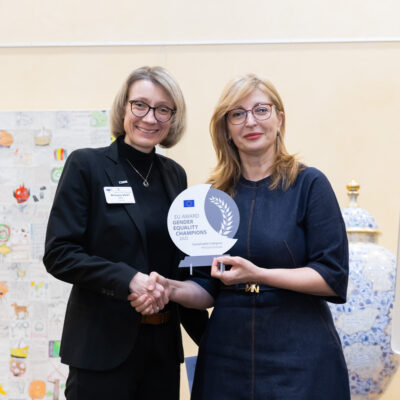For the DFB Cup final between Bundesliga team VfB Stuttgart and underdog third-division club Arminia Bielefeld (May 24, 2025), researchers from Bielefeld University, in collaboration with the Bielefeld Wissenswerkstadt, want to find out how the match affects measurable vital signs like pulse and stress levels among Arminia fans.
An entire city is feverishly anticipating the final. ‘But how can we objectively measure something that’s so clearly in the air?’ asks Professor Dr. Christiane Fuchs, head of the Data Science Group at the Faculty of Business Administration and Economics at the university. Her research partner, Professor Dr. Christian Deutscher from the Faculty of Psychology and Sports Science, adds: ‘We’re interested not just in how scoring chances, goals, and referee decisions increase fans’ pulse rates during the final, but also in comparing this data to the time before and after the match.’

© Wissenswerkstadt/Sarah Jonek
Study measures stress levels with smartwatches
There have been occasional scientific studies in this area, explains Deutscher. For instance, it was found that during the 2014 FIFA World Cup, the number of emergency heart treatments and deaths from heart attacks rose—particularly around the final against Argentina. But how do you measure the collective teeth-chattering in front of the TV and the liberating cheers after a goal?
‘For this study, no one needs to be wired up—that’s its big advantage,’ says Jens Franzke, press spokesperson for the Bielefeld Wissenswerkstadt, which supports innovative approaches to connecting science and society. The researchers aim to make use of the fact that many people now wear so-called smartwatches that record heart rate, movement, and other data. These digital wristwatches are no longer just a niche interest for fitness enthusiasts but have become a part of daily life thanks to features like step counters and sleep tracking.
Anyone who owns a smartwatch made by Garmin, one of the market leaders, can take part in the Arminia study. The U.S.-based company offers researchers worldwide a privacy-compliant way to access data from users who voluntarily sign up for scientific studies. ‘Unfortunately, other smartwatch brands had to be excluded due to the streamlined study design,’ says Christiane Fuchs.
At least 100 participants needed for reliable results
All participants only need to register once via a link and then don’t need to do anything else—except, of course, watch the match while wearing the gadget on their wrist. The fitness data selected for the study will be transmitted to the researchers via synchronization with the Garmin app.
Between 100 and 300 people are expected to participate in the study, titled ‘Our Heart Beats for Arminia,’ in order to produce meaningful results. ‘Focusing on people who own fitness-tracking smartwatches and likely engage in sports themselves doesn’t limit the validity of the results,’ explains Christian Deutscher. ‘Because when the watch is worn regularly in everyday life, the potential effect of football fever can be individually factored out.’
Not only cardiologists might be interested in what happens to the heartbeat of a city and region if the underdog actually wins the cup at Berlin’s Olympic Stadium. The researchers and the Wissenswerkstadt will make the results of the study available to the public afterward.
Transparency notice: This translation was created with machine assistance and subsequently edited.





